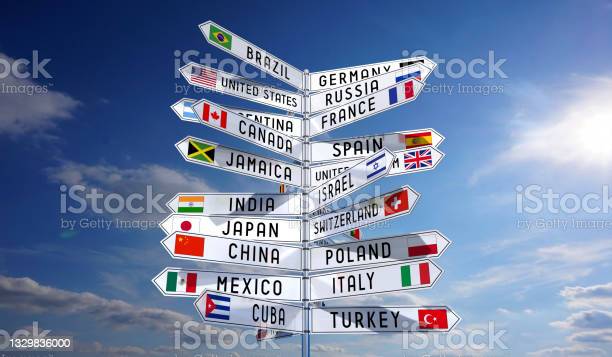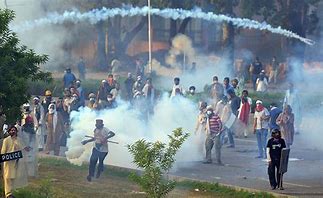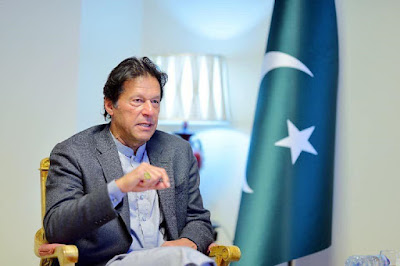The former prime minister of Pakistan Imran Khan is accused he abdicated Pakistan in the international frame. Pakistan was one of the 35 nations which refrained from polling for a resolution in the UN General Assembly criticising the Russian attack on Ukraine. During the discussion, analysts of the resolution argued that it revealed the dual criteria of the Western polities who have overrun countries including Libya, Iraq and Afghanistan in recent decades. The 35 countries which refrained from voting comprised Pakistan, Bangladesh, Sri Lanka, India, and South Africa. Pakistan however, was sole to receive a notification from America for voting against the resolution. Notification insisted that the government of Pakistan was informed about the influence that Russia’s warfare against Ukraine could have on the regional and global shields.
In January 2022, a few hours before the UN General Assembly meeting, 23 foreign diplomats deployed in Pakistan insisted Pakistan denounce Russia’s movement against Ukraine in the UNGA session. Besides Japan and Canada, the signatories also had representatives from European polities. Some of these countries had been extremely helpful to Pakistan, like Germany, Belgium, Japan, France, the UK, Italy and Canada. It is also noteworthy that the UK government unilaterally called off the visit of National Security Adviser (NSA) Moeed Yusuf without stationing any reasoning. Former PM Imran Khan proclaimed that he did not endorse the bloc politics of the Cold War era, which is commendable. But the statements from the top leaders of Pakistan were elucidated differently.
One of the causalities, why Pakistan was abandoned by a group of 35 was the undeclared impulses to the West arriving from the most elevated quarters in our motherland. While America had not openly demanded air bases, former PM Imran Khan revealed he would never allow America to operate lands of Pakistan as a military base. The former PM could have employed diplomatic tracks instead to communicate the announcement. Imran Khan is accused instead of being gratified in heroics to gain political capital. Conveying a cue, President Arif Alvi proclaimed in an address that America had not comprehended from Vietnam War. President Alvi corresponded with Pakistan’s humanitarian antidote of Afghan refugees contrary to Europe, which he stated allowed their surge in the Mediterranean, besides the news of ravishments and killings. The uncalled-for statements from the highest quarters in Pakistan might have delivered a feeling of exhilaration to those who produced them but have been detrimental to the national interest.
Former Foreign Minister Shah Mahmood Qureshi expressed that for Pakistan to achieve its foreign policy goals, bringing its economic position in order was essential. Discoursing the launch of the report on “Leveraging Private Investment for Pakistan’s Sustainable Development” at the Ministry of Foreign Affairs, he stated the administration was performing towards a more generous investment circumstance to assist and strengthen the confidence of investors.
The former minister expressed Pakistan was dedicated to Sustainable Development Goals (SDGs) and the United Nations’ Agenda 2030 to guarantee inclusive and sustainable growth.
He stressed that Agenda 2030 and SDGs ought to evolve as a global framework to facilitate the private sector to enjoy the advantages and tradeoffs of sustainable growth.
He marked Pakistan had accomplished a promising growth of 5.37 per cent even though the macroeconomic variables indicated in the opposite direction in August 2018 when the incumbent government assumed power.
He said with a country like Pakistan yet being in an International Monetary Fund (IMF) programme, executing the objectives of sustainable development; was a challenge. He added Pakistan needed to be innovative and think of out-of-the-box solutions to stimulate growth.
He stated that the government’s emphasis had transformed with the recent launch of a new national security policy concentrating on economic policy that enclosed food and water security. The former foreign minister stated that connecting sustainable growth to development was the aim of the government and expressed certainty that the report would set guiding regulations for inclusive and sustainable development.
He said the Foreign Office had an important role to play in this respect and motivated the diplomats to get out of the notion of performing in silos and instead concentrate on a collaborative technique.
UNDP Resident Representative in Pakistan Knut Ostby expressed the global development financing sector was at the junction with many countries struggling in the path of the Covid-19 pandemic and climate change.
He spoke the UNDP was delivering guideline advisory and specialised assistance to Pakistan and presented the government adopting a holistic approach framework.
He voiced UNDP acknowledged Pakistan’s economic and development policy objectives to stimulate regional trade, investment, and connectivity between Afghanistan, China, Iran, and Central Asian Republics for stability, peace and development. He stressed promoting the private sector to stimulate economic maturation in the country.
UNDP Adviser on Finance Haroon Sharif reported the key components of the report concentrating on leveraging the private sector for Pakistan’s sustainable development. UN Additional Secretary Nabeel Munir expressed the government was devoted to accomplishing sustainable development and Agenda 2030 for a booming and prosperous Pakistan.
In conclusion, the discussion covered a range of topics including Pakistan’s decision to refrain from voting for a UN resolution criticising Russia’s attack on Ukraine, the pressure placed on Pakistan by foreign diplomats to denounce Russia’s actions, and the importance of Pakistan’s economic position in achieving its foreign policy goals. The former prime minister of Pakistan, Imran Khan, was accused of abdicating Pakistan in the international frame and making statements that were detrimental to national interests. The former foreign minister stressed the need for Pakistan to bring its economic position to achieve its foreign policy goals and emphasised the importance of connecting sustainable growth to development. The UNDP and UN officials expressed their support for Pakistan’s economic and development policy objectives and stressed the importance of promoting the private sector for economic growth. This is a concise summary of the policies and actions taken by the Imran Khan government about Pakistan’s relations with the international community. Further detailed discussions on this topic are available in other sections. Links to those sections are provided below.






One Comment